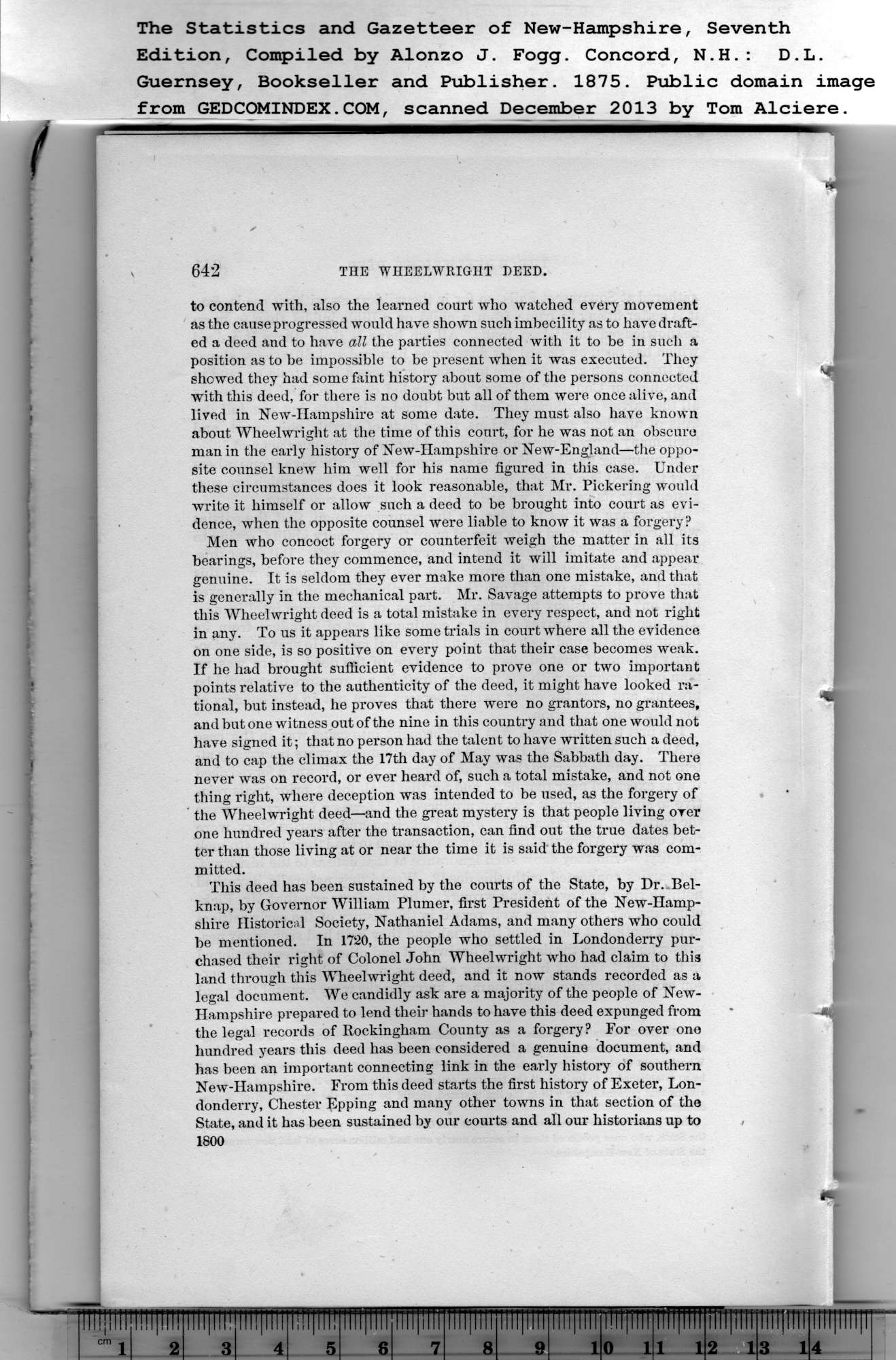|
642 THE WHEELWRIGHT DEED.
to contend with, also the learned court who watched every movement
as the cause progressed would have shown such imbecility as to have draft-
ed a deed and to have all the parties connected with it to be in such a
position as to be impossible to be present when it was executed. They
showed they had some faint history about some of the persons connected
with this deed, for there is no doubt but all of them were once alive, and
lived in New-IIampshire at some date. They must also have known
about Wheelwright at the time of this court, for he was not an obscure
man in the early history of New-Hampshire or New-England—the oppo-
site counsel knew him well for his name figured in this case. Under
these circumstances does it look reasonable, that Mr. Pickering would
write it himself or allow such a deed to be brought into coui*t as evi-
dence, when the opposite counsel were liable to know it was a forgery?
Men who concoct forgery or counterfeit weigh the matter in all its
hearings, before they commence, and intend it will imitate and appear
genuine. It is seldom they ever make more than one mistake, and that
is generally in the mechanical part. Mr. Savage attempts to prove that
this Wheelwright deed is a total mistake in every respect, and not right
in any. To us it appears like some trials in court where all the evidence
on one side, is so positive on every point that their case becomes weak.
If he had brought sufficient evidence to prove one or two important
points relative to the authenticity of the deed, it might have looked ra-
tional, but instead, he proves that there were no grantors, no grantees,
and but one witness out of the nine in this country and that one would not
have signed it; that no person had the talent to have written such a deed,
and to cap the climax the 17th day of May was the Sabbath day. There
never was on record, or ever heard of, such a total mistake, and not one
thing right, where deception was intended to be used, as the forgery of
the Wheelwright deed—and the great mystery is that people living over
one hundred years after the transaction, can find out the true dates bet-
ter than those living at or near the time it is said the forgery was com-
mitted.
This deed has been sustained by the courts of the State, by Dr. Bel-
knap, by Governor William Plumer, first President of the New-Hamp-
sliire Historical Society, Nathaniel Adams, and many others who could
he mentioned. In 1720, the people who settled in Londonderry pur-
chased their right of Colonel John Wheelwright who had claim to this
land through this Wheelwright deed, and it now stands recorded as a
legal document. We candidly ask are a majority of the people of New-
Hampshire prepared to lend their hands to have this deed expunged from
the legal records of Rockingham County as a forgery? For over one
hundred years this deed has been considered a genuine document, and
has been an important connecting link in the early history of southern
New-Hampshire. From this deed starts the first history7 of Exeter, Lon-
donderry, Chester Epping and many other towns in that section of the
State, and it has been sustained by our courts and all our historians up to
1800
PREVIOUS PAGE ... NEXT PAGE
This page was written in HTML using a program written in Python 3.2
|
